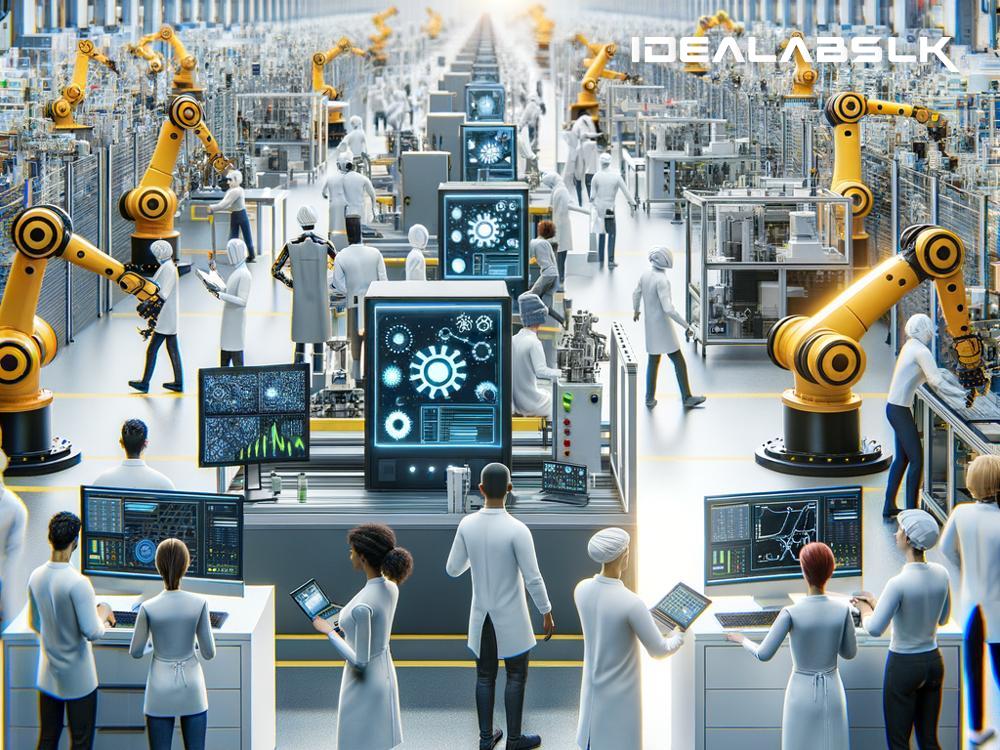The Role of AI in Predictive Operational Efficiency: A Simple Guide
If you've ever marveled at how your smartphone can predict what you're going to type next or how video streaming services recommend movies you end up loving, you've witnessed the power of Artificial Intelligence (AI) in action. But, beyond these everyday conveniences, AI plays a significant role in shaping the world of business, especially in enhancing operational efficiency. Let's dive into how AI is revolutionizing businesses by predicting operational needs before they even arise, making everything run smoother and smarter.
Understanding AI in Simple Terms
Before we get into the specifics, let’s break down what AI really means. Imagine teaching a child to recognize different fruits by showing them pictures. Over time, the child learns to identify each fruit based on its characteristics. AI works in a somewhat similar manner. Through a process called machine learning, computers are fed large amounts of data, which they then use to recognize patterns, make decisions, and predict outcomes without being explicitly programmed for each task.
The Magic of Predictive Operational Efficiency
Now, imagine applying that learning capability to a business's operations. Predictive operational efficiency is about using AI to predict and streamline business operations to improve efficiency and reduce costs. It's like having a crystal ball that shows you where you might run into problems in your workflow or where you can speed things up.
How Does AI Achieve This?
1. Data Analysis and Pattern Recognition
The first step is data analysis. AI systems analyze historical and real-time data within a business operation. They look for patterns and trends, such as peak times for sales, common delays in the supply chain, or regular downtimes in production. By recognizing these patterns, AI can predict when these events are likely to happen again.
2. Making Predictions
Utilizing the patterns recognized, AI can make educated predictions about future needs. For instance, if the AI notices that sales in a retail store peak on the first weekend of every month, it can predict a higher demand for staff and stock during that time. This allows businesses to prepare in advance, ensuring they're operating efficiently when it's most needed.
3. Automating Responses
Beyond predicting, AI can automate responses to its predictions. In our retail store example, not only can the AI predict a peak in sales, but it can also automatically adjust staffing levels and reorder stock based on its predictions. This automation removes the guesswork and manual labor traditionally involved in business operations management.
Real-World Applications of AI in Predictive Operational Efficiency
Manufacturing
In manufacturing, AI can predict machinery failures before they happen, allowing for preventive maintenance. This reduces downtime and keeps production lines moving smoothly. AI can also optimize the manufacturing process by predicting the best order to run production jobs, thereby reducing waste and increasing productivity.
Supply Chain Management
Supply chains can be unpredictable, but AI brings a level of predictability. By analyzing data across the supply chain, AI can predict which suppliers are likely to be late, which transportation routes are most efficient, and when warehouse stock needs replenishing. This ensures that products move smoothly from production to the customer.
Customer Service
AI can also predict customer service needs. By analyzing past customer interactions, AI can identify common issues and predict when customers are likely to experience them. This allows businesses to address problems before they affect the customer, improving satisfaction.
The Future of Operational Efficiency
The potential of AI in operational efficiency is immense and continuously evolving. With advancements in AI technology, we can expect future businesses to run even more smoothly. AI's role will likely shift from not just predicting operational needs but also finding innovative ways to meet those needs, pushing the boundaries of what's possible in business efficiency.
Conclusion
The role of AI in enhancing predictive operational efficiency is transforming how businesses operate. By analyzing data, recognizing patterns, making predictions, and automating responses, AI is enabling businesses to be more proactive, efficient, and cost-effective. As AI technology continues to evolve, its impact on operational efficiency will only grow, making it an indispensable tool for businesses looking to stay ahead in the competitive market.
In a world that's rapidly embracing the power of AI, understanding and leveraging these technologies are key to achieving unparalleled operational efficiency. The future of business is predictive, and with AI, that future is already here.

